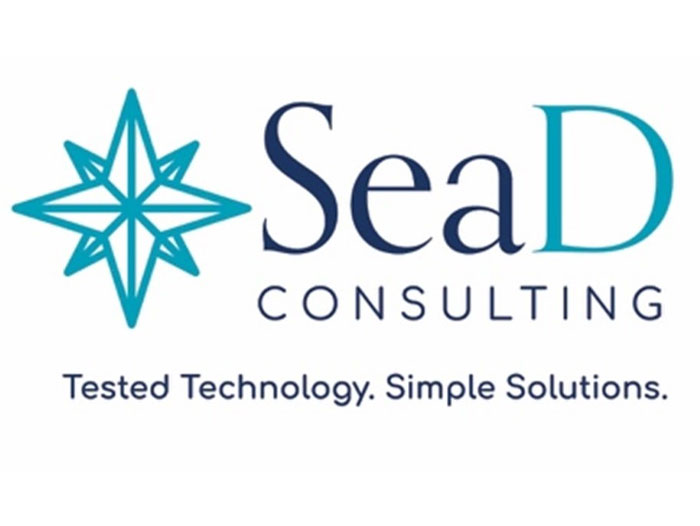
Only One Vendor Found Selling Imports; 18 Out of 19 Dishes Contained Authentic U.S. Wild-Caught Shrimp
New Orleans, LA — In recent years, the New Orleans Jazz & Heritage Festival faced speculation over whether vendors were sourcing foreign imported shrimp—rumors fueled by sightings of trucks delivering questionable seafood to festival grounds. However, new findings from genetic testing utilizing the RIGHTTest™ and conducted by SeaD Consulting at the 2025 Jazz Fest paint a much different, and more promising, picture.
Out of 19 shrimp-based dishes tested across multiple vendor booths, only one was found to contain imported shrimp. The remaining 18 dishes were verified to be made with wild-caught Gulf shrimp, according to DNA testing methods used by SeaD Consulting. The results are a significant turn from past concerns and mark a win for Louisiana’s local shrimp industry and the integrity of the iconic music festival.
Despite regulations from the Louisiana Department of Health that, unlike restaurants, allows vendors at temporary events to serve imported or farm-raised shrimp without listing that fact, nearly every single participating vendor at this year’s Jazz Fest voluntarily chose to support the local economy by using authentic Gulf shrimp. The following vendors and dishes were tested on Thursday April 24, 2025 and found to be selling authentic wild-caught shrimp:
Food Area One
- Panorama Foods: Shrimp Bread
- Ten Talents Catering: Sunflower Salad with Grilled Gulf Shrimp
- Papa Ninety Catering: Shrimp & Lump Crab Ravigote
- TCA Brocato: Seafood, Sausage & Okra Gumbo
- Patton’s Caterers: Shrimp Beignets
- Vuchinovich’s Restaurant: Friendship Po Boy
- Gallagher’s Grill: Seafood Mirliton Casserole
- Café Dauphine: Shrimp & Crawfish Eggrolls
Food Area Two
- Ajun Cajun: Shrimp Yakisoba
- Fritai: Grilled Shrimp Pikliz
- TJ Gourmet: Shrimp Remoulade Po-Boy
- Tempero’s Market Kitchen: Grilled Gulf Shrimp Tacos
- Caluda’s Cottage Catering: Shrimp & Grits
Heritage Square
- Ba Mien Vietnamese Cuisine: Shrimp Skewers
- Ba Mien Vietnamese Cuisine: Shrimp Vermicelli
- Li’l Dizzy’s Café: Trout Dizzy
Louisiana Folklife Village
- United Houman Nation: Shrimp Macque Choux
Cultural Exchange Village
- Tempero’s Market Kitchen Y Ella: Tostada De Ceviche De Camrones
Only one dish was found to have imported shrimp. That same vendor’s other shrimp dishes used authentic Gulf shrimp. The name of the company and item was released to the Southern Shrimp Alliance, who paid for the study.
“This is a huge moment of pride for New Orleans,” said Dave Williams, Founder of SeaD Consulting. “Vendors were caught doing the right thing. It’s not just about food—it’s about culture, community, and integrity. We’re thrilled to see so many local businesses doing their part to support Louisiana shrimpers.”
The festival testing was part of a broader push by the U.S. shrimp industry to promote transparency in seafood sourcing. Over the past six months, the Southern Shrimp Alliance and the Louisiana Shrimp Task Force have funded SEAD Consulting to conduct genetic testing of shrimp served at more than 300 randomly selected restaurants across seven shrimp-producing states.
The shocking results reveal a pervasive problem of restaurants falsely implying or outright stating they serve premium U.S wild-caught shrimp, while actually providing imported farm-raised shrimp. These deceptive practices occur a staggering 78% of the time in states lacking seafood labeling laws, and 36% of the time in states with such regulations.
“In prioritizing U.S. wild-caught shrimp, Jazz Fest vendors have demonstrated their commitment to Louisiana’s heritage and authentic culinary excellence,” said John Williams, Executive Director of the Southern Shrimp Alliance. “The New Orleans community is an example of how accountability and local support go hand in hand. Regulations that address mislabeling and false advertising of shrimp enable consumers to choose premium seafood that supports the local, sustainable shrimp industry.”
The news comes as a boost to the Louisiana shrimping industry, just before the start of the inshore shrimping season. Jazz Fest’s demonstrated commitment to local sourcing shows how cultural institutions can help preserve regional economies and food traditions.
About The Louisiana Shrimp Task Force
The Louisiana Shrimp Task Force is responsible for studying and monitoring the shrimp industry and making recommendations to The Louisiana Department of Wildlife and Fisheries (LDWF), the Louisiana Wildlife and Fisheries Commission, and other state agencies on improving production and the economic sustainability of the industry.
About Southern Shrimp Alliance
The Southern Shrimp Alliance (SSA) is a collective of shrimp fishermen, processors, and industry advocates from the eight warmwater shrimp-producing states. SSA supports domestic shrimpers through advocacy, research, and consumer education. Visit https://shrimpalliance.com to learn more about their work.
About SEAD Consulting
SEAD (Seafood Development) Consulting partners with fishermen, academics, government agencies, and nonprofits to develop solutions that protect seafood integrity. SEAD’s patented RIGHTTest™, developed in partnership with Florida State University, is the industry’s first portable, rapid, and affordable genetic test designed to combat seafood mislabeling in real-time. Learn more or report suspected fraud at: www.seadconsulting.com/contact-us
#SEADConsulting #KnowYourShrimp #RIGHTTest